Faculty and Staff
Management Team
- David Kaplan, Director
- Matt McNulty, Associate Director
- Meera Zassenhaus, Head of Communications
- Scott Frost, Program Manager, USDA National Institute for Cellular Agriculture
School of Engineering
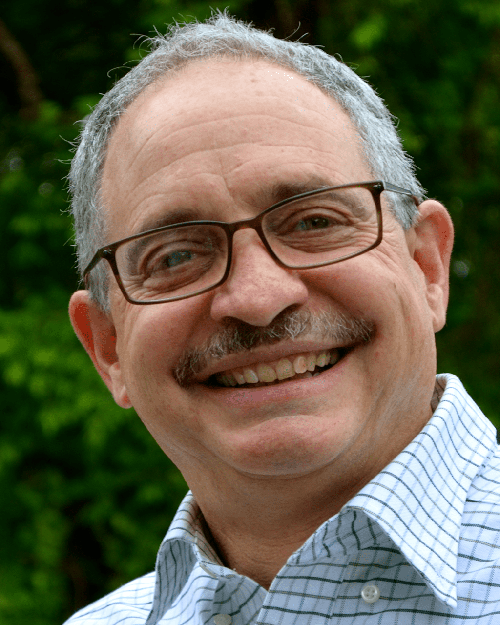
David Kaplan
Stern Family Endowed Professor of Engineering, Distinguished University Professor, Professor of Biomedical Engineering, and Director of Tufts University Center for Cellular Agriculture
Research areas: biopolymer engineering, biomaterials, material science, tissue engineering, bioengineering
David Kaplan's research focus is on biopolymer engineering, tissue engineering, regenerative medicine and cellular agriculture. He has published over 1,000 peer reviewed papers, he is editor-in-chief of ACS Biomaterials Science and Engineering, and he serves on many editorial boards and programs for journals and universities. He has received awards for his research and teaching and is an elected Fellow of the American Institute of Medical and Biological Engineering and the National Academy of Engineering.
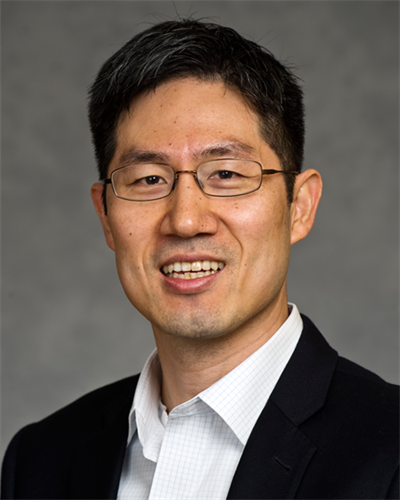
Kyongbum Lee
Dean of Tufts School of Engineering, Karol Family Professor, and Professor of Chemical Engineering
Research areas: metabolic engineering, tissue engineering, systems biology
Kyongbum Lee’s research interests include metabolic engineering, tissue engineering, and systems biology. His research group is interested in the study of cellular metabolism and its role in directing biological function. The group aims to gain fundamental insights into the biochemical and biophysical cues contributing to the regulation of metabolic pathways and to develop technologies for assembling, characterizing, and manipulating these systems. It seeks to translate these basic insights and technologies into applications leading to engineering practice and meaningful health outcomes. The group is particularly interested in discovering therapeutic and diagnostic targets for metabolic diseases such as obesity.
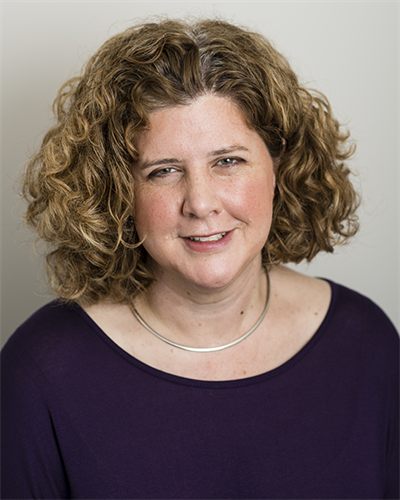
Merredith Portsmore
Director and Research Associate Professor, Tufts Center for Engineering Education and Outreach
Research areas: education, engineering design, processing skills
Merredith Portsmore’s research interests focus on how K-12 students engage in learning engineering and how to improve engineering education by supporting the development of curriculum and the practice of teaching through research that focuses on how students engage in engineering design projects and how they develop skills and understanding related to the engineering design process.
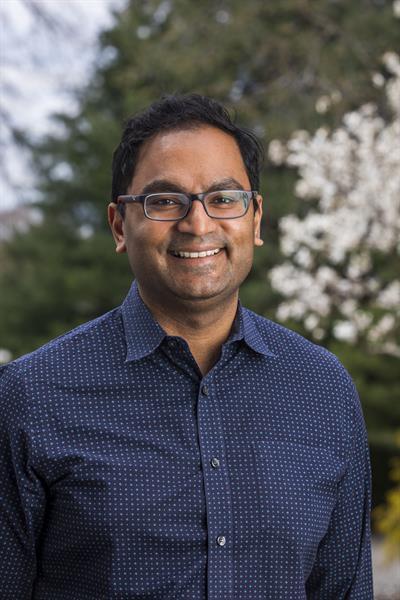
Nik Nair
Associate Professor, Department of Chemical and Biological Engineering
Research areas: protein expression, protein engineering, microbial engineering, probiotics, and synthetic biology
Nikhil (Nik) U. Nair joined Tufts in 2013 after completing a three-year postdoctoral fellowship in Microbiology and Immunobiology at the Harvard Medical School under the guidance of Ann Hochschild. He is a recipient of the 2016 NIH Director’s New Innovator Award. One of the major goals of the Nair lab is to develop tools for rapid genetic engineering of non-model and emerging model microbes, with a particular focus on food-safe and probiotic bacteria and fungi. The group is also interested in factors that control proteins activity and expression in microbes. These interests will be well-aligned with the goals of the Cell Ag project by exploring the use of various microbial chassis for the production of proteins important for cell culture and food products
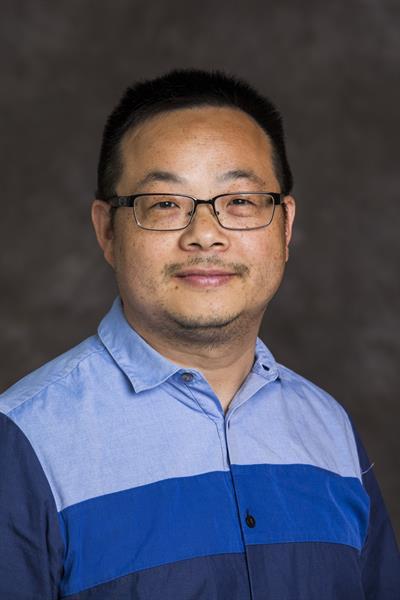
Qiaobing Xu
Professor, Department of Biomedical Engineering
Research areas: biomaterials, drug delivery, micro/nanofabrication, tissue engineering
Qiaobing Xu’s group uses a combinatorial library approach to develop novel synthetic biodegradable lipid-based nanomaterials for delivery of biomacromolecules in cancer therapy, gene editing, and tissue regeneration. The ability to reach the intracellular molecular targets provides a better way to engineer cells, with increased efficacy and fewer off-target interactions. The group has identified several novel lipid nanoparticles with superior efficiency and organ targeted ability for delivering various biological cargos, including mRNA and small nucleic acids. Recently, in collaboration with Dr. Yan Tang and Dr. Elizabeth Henske at Harvard Medical School, the group developed a lung-selective mRNA delivery of synthetic lipid nanoparticles for the treatment of pulmonary lymphangioleiomyomatosis (PNAS, 2022, in press).
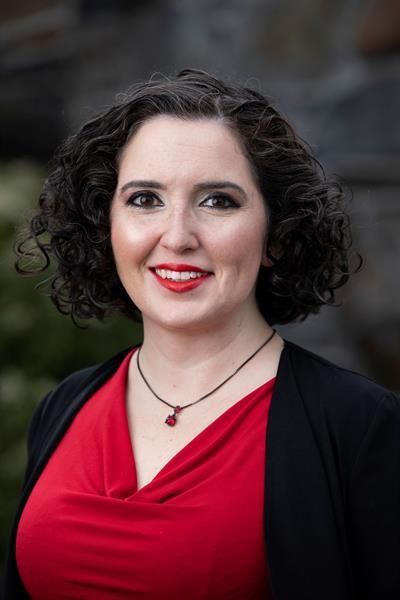
Ayse Asatekin
Associate Professor, Department of Chemical and Biological Engineering
Research areas: membranes, water treatment, nutrient recovery, water reuse, wastewater treatment, filtration, surface science, fouling, polymer science, encapsulation, and separations
Ayse Asatekin joined Tufts in 2012. She received bachelor's degrees in chemical engineering and chemistry from the Middle East Technical University in Ankara, Turkey. She received her PhD in chemical engineering through the Program in Polymer Science and Technology (PPST) at MIT. She then served as a post-doctoral researcher in Professor Karen Gleason's group at MIT. She is the co-founder and scientific advisor of Clean Membranes, Inc. This start-up company commercialized a fouling-resistant membrane technology that she began developing during her doctoral research. More recently, she serves as the Senior Scientific Advisor for ZwitterCo, Inc., a start-up spun out of Tufts to commercialize novel, extremely fouling-resistant zwitterionic membranes developed in her lab. Cellular agriculture is an exciting technology that promises a more sustainable future, one of their core motivations for research. She hopes to apply their expertise in developing fouling-resistant membranes with precise selectivity to this field, addressing challenges such as the treatment of wastewater streams from cellular agriculture, selective nutrient recovery from waste streams, and water reuse to decrease the environmental impact of these processes.
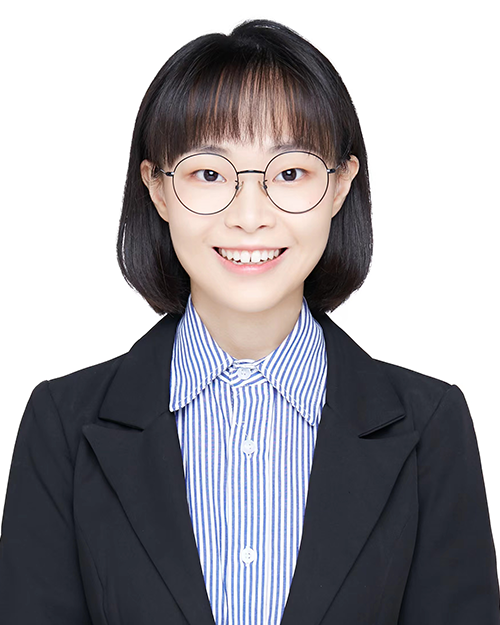
Xinxin Li
Postdoctoral Scholar
Research areas: cell culture, scaffolds development, food science
Xinxin Li did her PhD in Food Science at the University of Nottingham in the UK. Her PhD project focused on investigating the effect of saliva (or reconstituted saliva) on the rheological and lubrication properties of biopolymers that can be used as food additives through shear rheology, extensional rheology, and tribology. She obtained her MSc in Food Technology (specialized in Sustainable Food Process Engineering) at Wageningen University and her BSc in Process and Food Technology at The Hague University of Applied Science. During her PhD study, she was a secretary and assistant in the webinar of Jiangnan University-Wageningen University and Research Future Food Cloud Series Forum. Several professors gave presentations on meat analogs, including cultivated meat and plant-based meat. Since then, she has become interested in cultivated meat research, particularly tissue engineering related to 3D scaffolding. She is working on the following projects: seeding muscle or adipose cells on cost-effective scaffolds with the target of generating tissues of muscles or fat, and establishing an in-vitro 3D culture model of the mammary gland to induce milk (proteins) production.
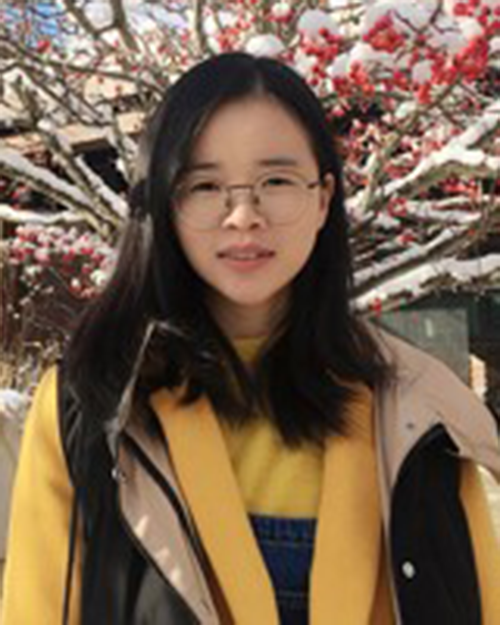
Ya Yao
Postdoctoral Scholar
Research areas: edible films, muscle cell culture, biomaterial engineering, and characterization
Ya Yao's PhD background is in materials - scaffolds/films prepared from biomaterials are essential to support cell growth, proliferation, and differentiation for cultured meat applications. Currently, her project is focused on edible films for cultured meat using muscle cells.
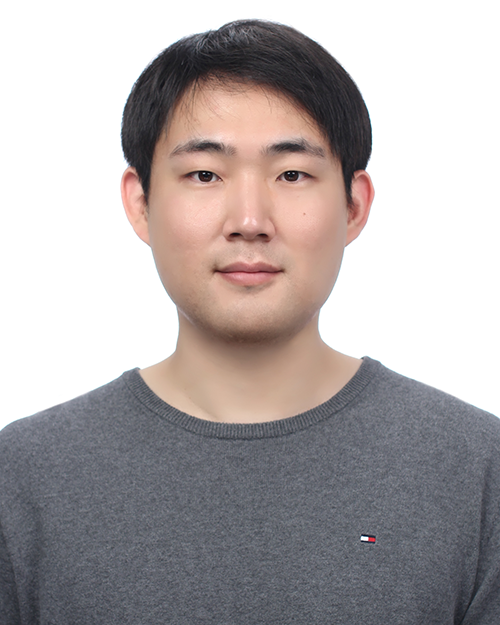
Taehwan Lim
Postdoctoral Scholar
Research areas: food science, cell-line development, cell differentiation, fish cell culture, crustacean cell culture, serum-free media development, bioreactor, nutrition
Taehwan Lim completed his PhD in Food Science and Nutrition at Seoul National University. After graduation, he was looking for an area where he could contribute as a food scientist. At that time, he noticed that the Kaplan Lab had been working with cellular agriculture, which inspired him. He thought cellular agriculture could be a great option to solve food security and sustainability issues. His current projects focus on evaluating and developing the methods for cultured meat, including the speed-up technique for cell differentiation using food-grade compounds, lobster cell isolation, the adaptation of muscle cells to serum-free conditions, and dynamic culture.
School of Arts and Sciences
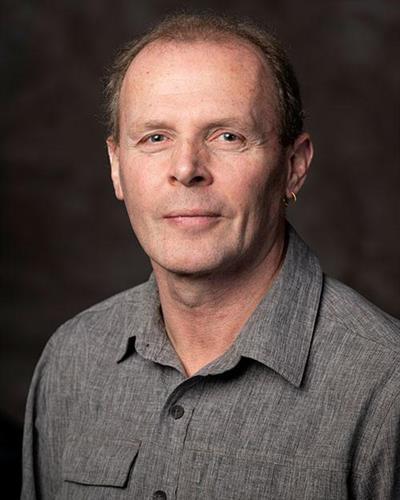
Barry Trimmer
Professor (Henry Bromfield Pearson Professor of Natural Sciences)
Research areas: insect cells, muscles as actuators, muscle growth, and differentiation, material properties of muscle, electrophysiology
Barry Trimmer was trained in neuroscience and physiology with an undergraduate degree and Ph.D. from the University of Cambridge in the UK, and postdoctoral training at Harvard Medical School, University of California, Berkeley, and the University of Oregon. His research focuses on the Neuromechanics of Locomotion, the science of how animals control their movements. In addition to his work on living systems, Professor Trimmer specializes in the application of found biological principles to the design and fabrication of Soft Robots. His interests in living systems and robots converge in his recent research that seeks to "grow" robotic devices using a combination of biosynthetic materials, cellular modulation, and tissue engineering. These Biosynthetic Robots will be versatile, safe, biocompatible, and biodegradable. This has led to a strong interest in the in vitro growth of muscle tissue to exploit the unique physiological advantages of invertebrate tissues. These studies provide fundamental and technological insights for cellular agriculture applications.
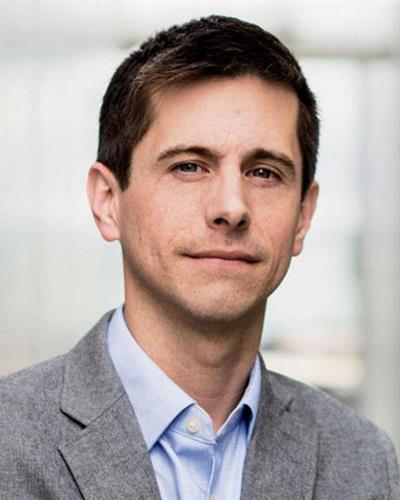
Ben Wolfe
Associate Professor, Department of Biology, Co-Director of Science, Technology, and Society
Research areas: ecology and evolution of microbial communities
Research in Ben Wolfe's lab has two broad research goals: 1) identify the molecular mechanisms that control the assembly and function of microbial communities, and 2) determine how microbial species evolve within multi-species communities. Most of our research projects focus on food microbiomes, including fermented foods such as cheese, sourdough, and kimchi. Projects in my lab integrate experimental evolution, metagenomics, comparative genomics/transcriptomics, genome engineering, and in situ community reconstructions. Our work seeks to develop microbial community design principles that can guide the management of microbial communities in agriculture, industry, medicine, and nature.
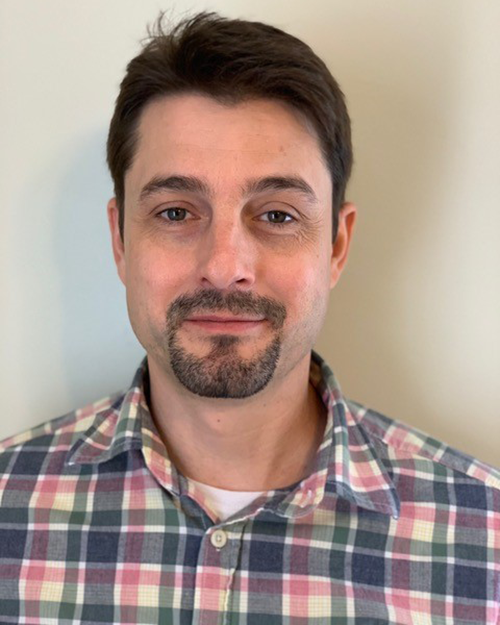
Scott Frost
Research Assistant Professor, Department of Biology
Research areas: food science, flavor chemistry, sensory evaluation, consumer acceptance
Scott Frost’s research explores the intersection of sensory perception and chemical measures to understand how food flavor and texture are influenced by production practices. Since completing my Ph.D. at UC Davis, I have explored the flavor chemistry of multiple foods and beverages. His work within the cutting-edge field of cellular agriculture will help to develop production techniques that can provide flavorful and sustainable foods.
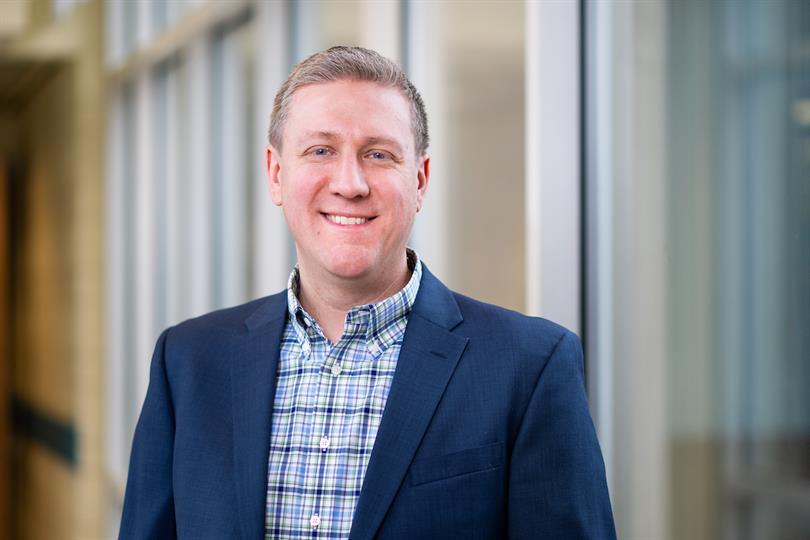
Charles Mace
Associate Professor, Department of Chemistry
Research areas: microfluidics, sensors, assay development, materials chemistry
Charlie Mace earned his BS from Le Moyne College in 2003, followed by an MS (2006) and Ph.D. (2008) from the University of Rochester in the laboratory of Prof. Benjamin Miller. He was then a postdoctoral scholar in the laboratory of Prof. George Whitesides at Harvard University from 2008–2011. Prior to joining the faculty at Tufts in 2013, he was a senior scientist at Diagnostics For All, a non-profit medical device company. The Mace lab’s broad expertise in microfluidics leverages Charlie’s 10+ years of experience in developing low-cost and broadly distributable solutions for point-of-care analysis. Charlie has led projects spanning the design of sensors to detect adulteration of pre-mixed infant cereals to rapid assays for bacterial contamination of milk sold by small shareholder farmers. Beyond the intersection of technology and food security, his lab additionally develops assays to rapidly and non-invasively evaluate cell growth and differentiation.
School of Engineering and the School of Arts and Sciences
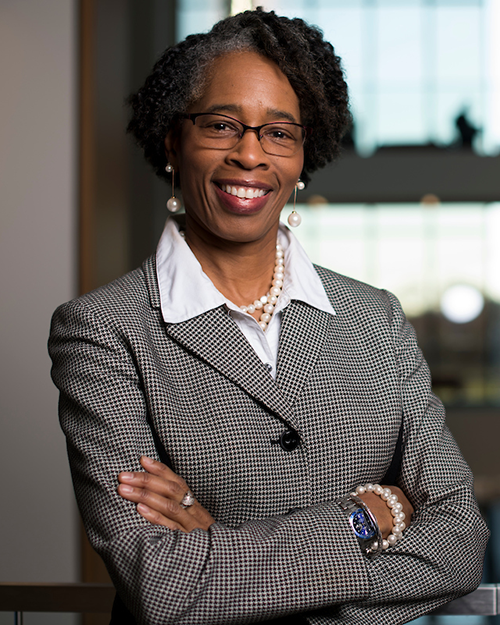
Ellise LaMotte
Associate Dean of Student Diversity, Inclusion and Success
Research areas: STEM education, diversity, inclusion, equity, and social justice
Ellise LaMotte leads the Division of Student Diversity and Inclusion for the Schools of Arts & Sciences and Engineering. She was previously Director of the Center for STEM Diversity, where she led a team that develops and implements broadening participation programming for underrepresented students in STEM. She works on diversity, inclusion, and equity issues across a student’s Tufts experience, from matriculation to graduation.
Cummings School of Veterinary Medicine
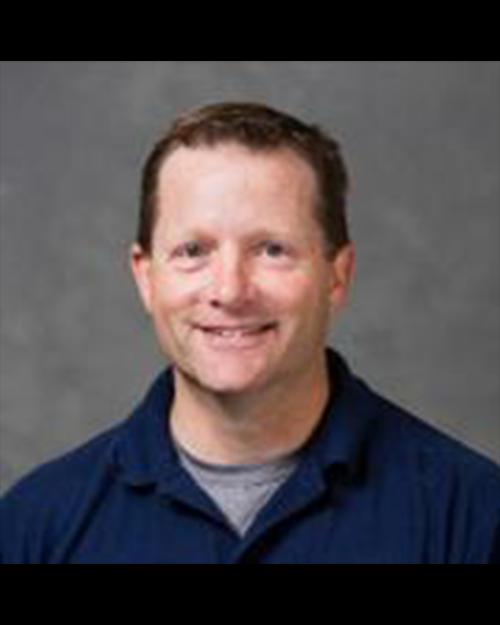
Eugene White
Associate Professor and Amelia Peabody Foundation Chair in Agricultural Sciences
Research areas: animal medicine and surgery, clinical skills, reasoning, and dermatology, veterinary economics, and ethics, bovine procedures, dairy production medicine, bovine lameness, advanced reproductive technologies
Eugene White received his undergraduate degree from the University of New Hampshire and his Doctor in Veterinary Medicine from Cornell University. He is the course director for Clinical Skills 2 at Cummings School. He lectures in food animal medicine, dermatology, dairy production medicine, human animal relations, veterinary ethics, veterinary economics, bovine procedures, and clinical reasoning. He has completed research in advanced reproductive technology and sustainable agriculture. He is Board Certified by the American Board of Veterinary Practitioners in Dairy Practice, and his additional professional interests include embryo transfer, ovum pick up, and dairy production medicine. In his free time, he enjoys spending time with his wife and five children, as well as volunteering with little league baseball.
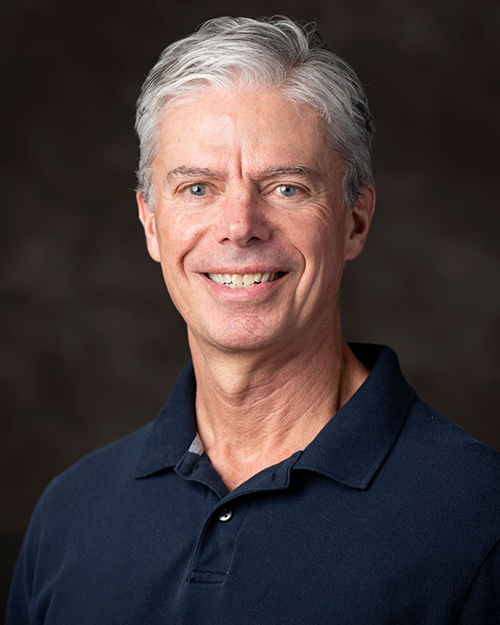
David Matsas
Assistant Professor and Interim Department Chair, Ambulatory Medicine and Theriogenology
Research areas: food, animal, veterinary Medicine
David Matsas received his undergraduate degree from the University of Connecticut, Doctor of Veterinary Medicine from Purdue University, and performed his residency at Cornell University. He is an assistant professor at Cummings School of Veterinary Medicine at Tufts University. With professional interests in superovulation, embryo transfer, and semen cryopreservation in small ruminants, he has completed research in large animal reproductive medicine and assisted reproductive technology, as well as the Swiss Village Farm (SVF) Foundation Rare Breeds Preservation Project. He is Board Certified by the American College of Theriogenologists and serves on the Board of Directors of the Theriogenology Foundation. In his free time, he enjoys cycling, running, windsurfing, and snowboarding.
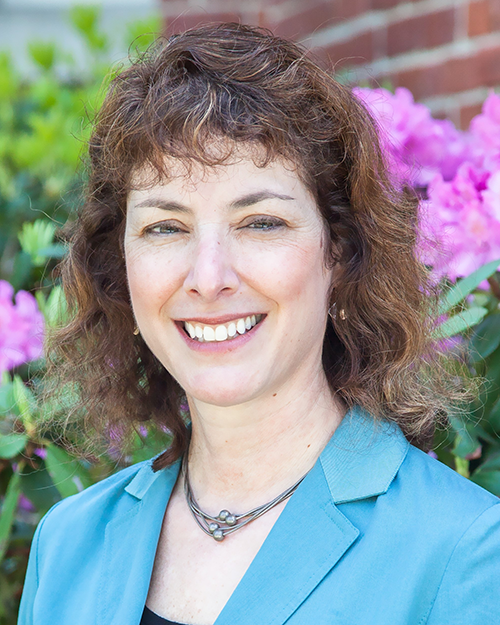
Lisa Freeman
Professor
Research areas: veterinary nutrition, critical nutrition, heart disease, cachexia, and sarcopenia
Lisa Freeman is a faculty member in the Nutrition Service at the Cummings School of Veterinary Medicine. She is a board-certified veterinary nutritionist and earned a bachelor’s from Tufts University, a DVM from the Cummings School of Veterinary Medicine, and a PhD in nutrition from the Friedman School of Nutrition Science and Policy. She is a professor at the Cummings School, where she is active in research, teaching, and clinical care of patients with a secondary appointment at the Friedman School. Her research focuses on nutrition and heart disease, as well as cachexia and sarcopenia.
Friedman School of Nutrition
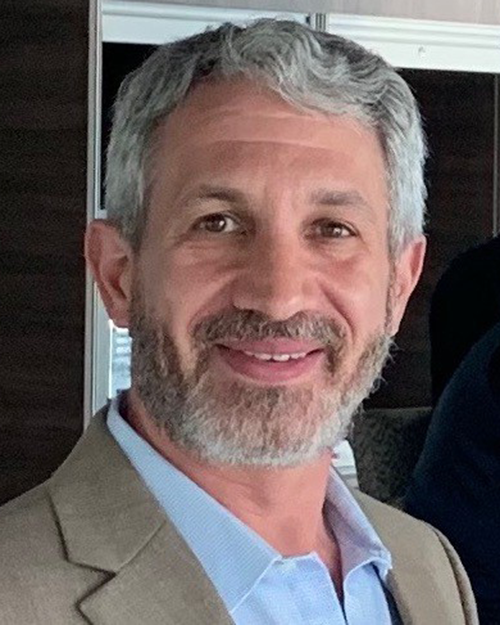
Sean Cash
Bergstrom Foundation Professor in Global Nutrition
Research areas: consumer behavior, economics, sustainable agriculture, food policy
Sean B. Cash is an economist and Associate Professor with the Friedman School of Nutrition Science and Policy at Tufts University. His research focuses on how food, nutrition, and environmental interventions and policies affect both producers and consumers. Ongoing and recent projects in this area include the efficacy of food label and price interventions as public health and environmental tools; children’s food choices in commercial and school environments; food labeling of ethical attributes of food production; and online food retailing. He also conducts research in the areas of environmental impacts in food production, including projects on climate change and coffee tea production, and invasive species management. On the cellular agriculture project, he is leading the team looking at consumer interest in new technologies and products and contributing economic expertise to other components of the work.
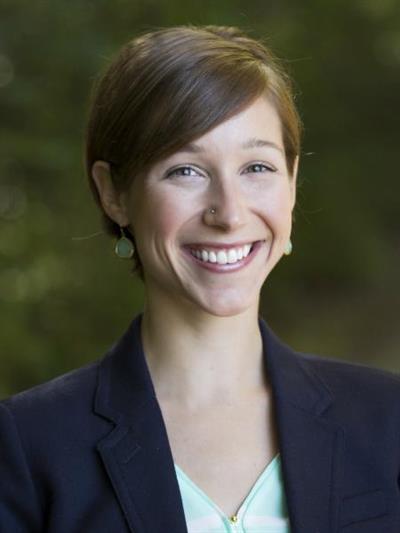
Nicole Tichenor Blackstone
Assistant Professor, Division of Agriculture, Food, and Environment
Research areas: sustainability, life cycle assessment, nutrition, food systems, agriculture
Nicole Tichenor Blackstone is an assistant professor in the Division of Agriculture, Food, and Environment at the Friedman School of Nutrition Science and Policy at Tufts University. Her research focuses on developing and evaluating strategies to improve food system sustainability. Her work fuses industrial ecology, nutrition, and social science methods. Her cellular agriculture research focuses on analyzing systems' environmental and social performance, using life cycle assessment and stakeholder engagement techniques. She teaches graduate courses on U.S. agriculture, environmental life cycle assessment, and corporate social responsibility in the food industry. She holds a PhD and MS in Nutrition from Tufts University and a BA in Philosophy and Religious Studies from the University of Kansas.
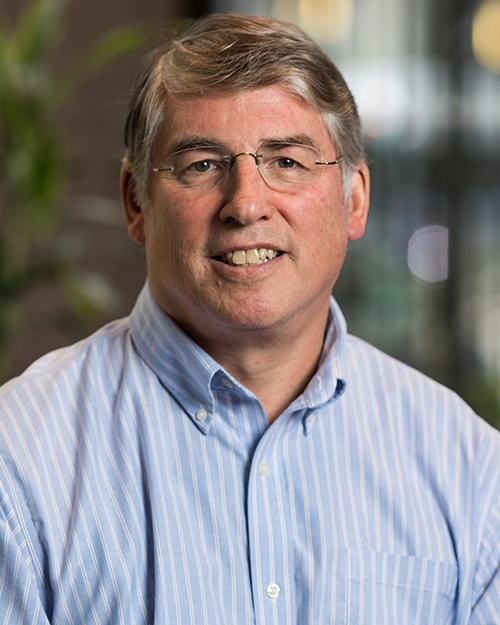
Joel Mason
Professor of Medicine and Nutrition
Research areas: nutritional science, nutrient requirements, bioavailability, sustainable agriculture
Joel Mason is an MD with residency training in internal medicine. He completed post-doctoral work at the University of Chicago in both gastroenterology and clinical nutrition, with research focused on the intestinal absorption of nutrients. He has always had a considerable interest in environmental issues, so he combines his professional life and non-professional life by developing a research focus on examining the nutritional value and bioavailability of nutrients from sustainable foods.
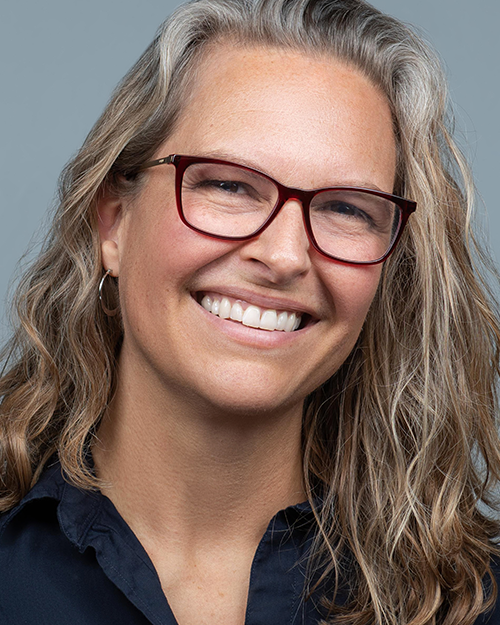
Katie Stebbins
Executive Director, Food & Nutrition Innovation Institute
Research areas: economic development, workforce development, environmental sustainability, equity and access, advanced tech economy, innovation ecosystems
Katie Stebbins, formally trained as an environmental urban planner and economic development professional, focuses on the future food tech economy and its opportunities to promote a healthier and more equitable food system. She served as the inaugural Massachusetts Secretary for Tech, Innovation, and Entrepreneurship, leading state investments in advanced technology clusters, and is motivated to connect the burgeoning research in Cell Ag to the globally competitive biotech cluster of Greater Boston.
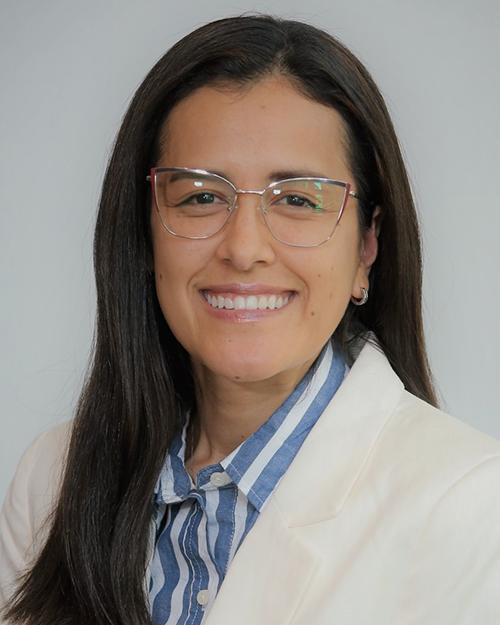
Kathy Fuller
Postdoctoral Research Scholar, Division of Agriculture, Food, and Environment
Research areas: Behavioral economics, experimental economics, consumer food choice behavior, food marketing
Kathy Fuller's research analyzes consumer preferences for new food technologies and willingness to pay for sustainable food products. Her research on cellular agriculture investigates consumers’ perceptions of cultivated meats and their willingness to try or replace their meat consumption habits. She holds a PhD in Agribusiness from Arizona State University and an MS in Agricultural Economics from Louisiana State University. While pursuing her doctorate, she obtained a certificate in Environmental and Sustainability Economics from the School of Sustainability at Arizona State University.
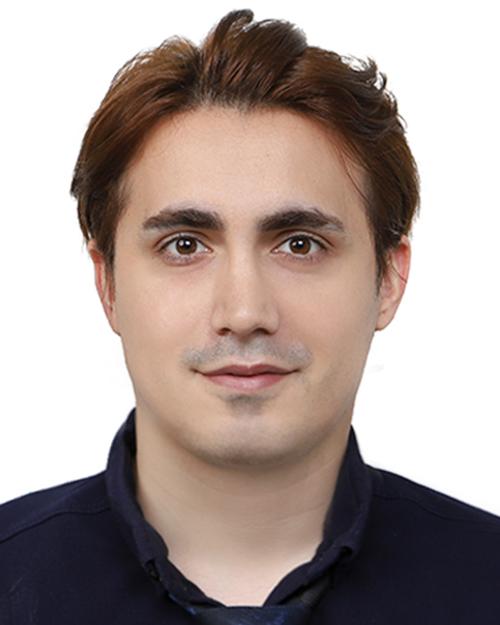
Amin Nikkhah
Postdoctoral Scholar, Division of Agriculture, Food, and Environment
Research areas: circular economy, food systems, life cycle assessment, sustainability
Amin Nikkhah has experience working on sustainability related projects on three different continents: Europe (Belgium), Asia (South Korea), and North America (the U.S.). He has published more than 40 scientific papers in high impact journals and is also the guest editor of the special issues in the Journal of Life Cycle Assessment and Sustainability. His current research interests are development of life cycle assessment (LCA) methodology, and circular economy in the sustainable/future food systems. He was awarded his PhD by the Department of Bioscience Engineering at Ghent University, Belgium in 2021. At Tufts University, he works with the CellAg project team aiming to use a small amount of animal cells to create cultured meat, replacing the environmentally damaging practice of raising and slaughtering animals for food. He is working with the LCA team to make the cultured meat production systems more environmentally sustainable/circular.
Faculty participants and expertise:
| Name Project Role Department | Organization | Discipline/Role |
| David Kaplan Investigator Biomedical Engineering | Tufts University (School of Engineering) | Tissue engineering, biomaterials, cellular agriculture |
| Barry Trimmer Investigator Biology | Tufts University (Graduate School of Arts & Sciences) | Physiology, insect cells, neurobiology |
| Sean Cash Investigator Agriculture, Food & Environment | Tufts University (Friedman School of Nutrition Science & Policy) | economics, nutrition, social science |
| Nicole Tichenor Blackstone Investigator Agriculture, Food & Environment | Tufts University (Friedman School of Nutrition Science & Policy) | Environmental life cycle assessment |
| Lisa Freeman Investigator Clinical Nutrition | Tufts University (Cummings School of Veterinary Medicine) | Clinical nutrition, veterinary medicine |
| Merredith Portsmore Investigator Engineering Education | Tufts University (Center for Engineering Education and Outreach) | Education, outreach, lead evaluator |
| Katie Stebbins Coordinator Food & Nutrition Innovation Institute | Tufts University (Friedman School of Nutrition Science & Policy) | Innovation, economic development |
| Ellise LaMotte Investigator The Center for STEM Diversity | Tufts University (School of Engineering) | Diversity, equity, and inclusion |
| Nik Nair Investigator Chemical & Biological Engineering | Tufts University (School of Engineering) | Bioengineered host cells to control functions |
| Qiaobing Xu Investigator Biomedical Engineering | Tufts University (School of Engineering) | Bioengineered host cells to control functions |
| Kyongbum Lee Investigator Chemical & Biological Engineering | Tufts University (School of Engineering) | Modeling, metabolomics |
| Eugene White Investigator Veterinary medicine | Tufts University (Cummings School of Veterinary Medicine) | Sources of cells and tissues from livestock |
| Ayse Asatakin Investigator Chemical & Biological Engineering | Tufts University (School of Engineering) | Materials, membranes, and separations |
| Charles Mace Investigator Chemistry | Tufts University (Graduate School of Arts & Sciences) | Scale up of production processes |
| Scott Frost Investigator Chemistry | Tufts University (Graduate School of Arts & Sciences) | Sensory analysis |
| Ben Wolfe Investigator Biology | Tufts University (Graduate School of Arts & Sciences) | Preservation technologies, microbiology |
| David Matsas Investigator Veterinary medicine | Tufts University (Cummings School of Veterinary Medicine) | Veterinary medicine |
| Joel Mason Investigator Nutrition | Tufts University (Friedman School of Nutrition Science & Policy) | Nutrition analysis, insect proteins |